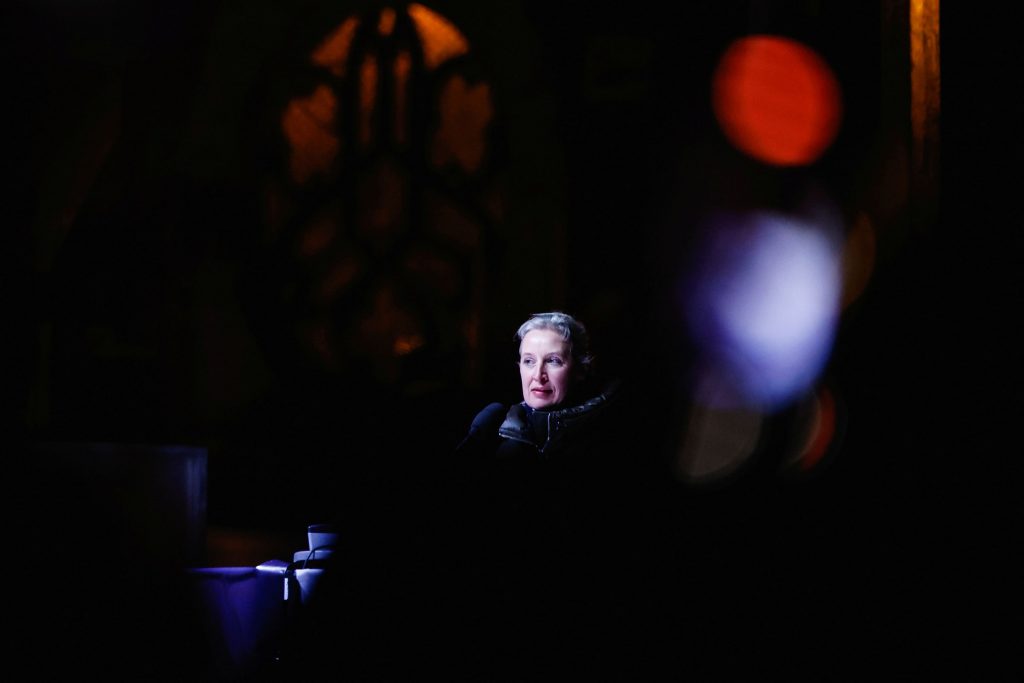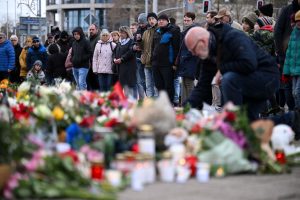In their methods, all terrorists share a common goal: to spread fear and terror through violence against innocents, taking as many lives as possible. Mass media play a crucial role in this, broadcasting the images of horror worldwide—along with any potential political messages.
In this fundamental principle, the attack carried out by a Saudi Arabian doctor, who drove an SUV into a crowd at a Christmas market in Magdeburg, killing five people and injuring over 200 others, fits the familiar pattern. But that is where the similarities between the Magdeburg bloodbath and other terrorist crimes end.
“After 25 years in this business, you think nothing could surprise you anymore,” wrote German terrorism expert Peter R. Neumann just hours after the attack. The expert, whose analyses are highly sought after these days, added: “But a 50-year-old Saudi ex-Muslim living in East Germany who loves the AfD and wants to punish Germany for its tolerance toward Islamists—that, I really didn’t see coming.”
Germany’s leading politicians, especially those in government, initially refrained from making hasty conclusions. The focus was on shock and collective mourning, which gripped the nation over the Christmas holidays. However, debates about the background of the crime are now gaining momentum. On Monday, the penultimate day of the year, a special session of the parliamentary committee on internal affairs is scheduled in Berlin. There, representatives of political parties will begin systematically analyzing the incident and seeking answers to questions that have gripped the German public like no other issue: What motivated the enigmatic Taleb Al Abdulmonheim? How could this deadly crime happen, and—most importantly—could the tragedy have been prevented by timely intervention from security authorities?
While Germany’s democratic parties have refrained from finger-pointing, the far-right Alternative for Germany (AfD) wasted no time blaming the government’s immigration policies. The party’s chairwoman, Alice Weidel, labeled the arrested perpetrator an “Islamist full of hate.”
We still do not know every detail about the perpetrator’s motives and biography. Police investigators, psychologists, and, ultimately, judges will uncover what drove him. However, based on his social media statements, it is almost certain that Taleb Al Abdulmonheim is not an Islamist. One clue is his will, found in the car used in the attack. In it, the 50-year-old Saudi specified that, in the event of his death (which he apparently anticipated), his entire fortune should go to the German Red Cross—a gesture hardly characteristic of an Islamist murderer.
German media have reported the perpetrator’s sympathies for the AfD. Posts on the social media platform X reveal his discussions about joint projects with the AfD, including an academy for Muslims who have renounced their faith—a mortal sin according to strict interpretations of Islam. He wrote: “Who else fights Islam in Germany (if not the AfD)?”
The AfD’s statements on the matter do not mention this; it does not fit the simplistic worldview of populists. A commentator for the liberal Süddeutsche Zeitung accused the party of deception: “Truth distorted into lies is part of the DNA of populism.”
Germany’s far-right, currently polling at around 20 percent, has powerful support from the United States. “Only the AfD can save Germany,” wrote Elon Musk, who was recently promoted to senior advisor to Donald Trump. He went on to call German Chancellor Olaf Scholz an “incompetent fool” and demanded his immediate resignation—an affront that bodes ill for German-American relations in the coming year.
Those thus accused called Musk’s endorsement of the AfD an “attack on German democracy.” SPD leader Lars Klingbeil stated, “It should alarm every democrat when both Putin and Musk interfere in the German election campaign.” He added, “That they both support the AfD speaks for itself.”

Alice Weidel, co-leader of the far-right Alternative for Germany party (AfD) speaks during a rally, near the site of the deadly car-ramming attack at a Christmas market, in Magdeburg, Germany, December 23, 2024. REUTERS/Axel Schmidt
It has since emerged that authorities had identified the perpetrator as a potential suspect as early as 2015. Reliable sources indicate that the Saudi government warned German authorities about their renegade citizen last year and demanded his extradition. It is also known that German authorities initiated investigations against the perpetrator. However, the Saudi was not known for violent acts but rather for threats and insults, which—according to the strict letter of the law—are insufficient for arrest, let alone deportation.
The Magdeburg terror attack also poses challenges to researchers studying violent extremism. According to German terrorism expert Hans-Jakob Schindler, the case demonstrates that alongside the classic categories of Islamic extremism, right-wing extremism, and left-wing extremism, there is now a new category: individuals who create their own ideological, personalized narratives.
In this specific case, alongside political and ideological factors, potential psychological disorders seem to have played a significant role in triggering the attack. “He wanted to inflict maximum pain on society,” says forensic psychiatrist Reinhard Haller. “There are two possibilities for his disorder: either he suffers from a paranoid personality disorder with strong fanatical tendencies, or he is a delusional individual consumed by an overriding idea that shaped his actions.”
It will take weeks, possibly months, before the final word on Germany’s last great tragedy of 2024 is spoken. In two months, Germans will elect a new parliament, and the election campaign is reaching its peak. Populists will seize on rumors and half-truths to garner votes. Migration will become an even more central topic of political debate. This is not good news for democratic forces, which will struggle to convince an agitated electorate of the increasing complexities of reality.
The Magdeburg bloodbath is merely one example of a reality difficult to grasp using rational criteria.
Dr. Ronald Meinardus is a Senior Research Fellow at the Hellenic Foundation for European and Foreign Policy (ELIAMEP).






